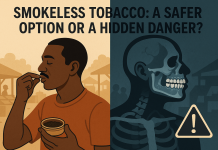- Yellow fever does not have any specific treatment – no particular drug that can cure it. Yellow fever treatment involves taking steps to help the immune system of the infected person to fight the disease and managing the symptoms.
- Yellow fever treatment is usually symptomatic – in other words, it is the symptoms that are treated in this disease. Also, supportive care is very important – it improves chances of survival, especially when it is started early in the disease process.
- Infected persons who develop symptoms most commonly suffer from the mild phase of the disease, which usually resolves on its own.
- Yellow fever disease lasts about three to four days for those who experience only the mild initial phase of the disease, after which they completely recover. However, when the disease progresses to the serious phase, it could last for many weeks if the infected person survives. Those who have symptoms but later recover are usually weak and easily tired for many months. 20-50% of those who enter the serious phase of the disease die.
- Whether or not a person will survive the disease depends on: (1)whether the person experienced the mild or severe phase of the disease; (2)the health status and immune status of the individual before infection with the virus; (3)the age of the infected individual (people older than 60 years and infants are more likely to develop the severe form of yellow fever and have a higher risk of dying); (4)the available facilities and level of expert supportive health care provided for the infected person during the course of the disease.
Some of the steps taken in yellow fever treatment are:
- Ensuring that the blood pressure stays within the normal range.
- Giving blood transfusion when it is required.
- Administering fluids (oral and/or intravenous, as required) to prevent dehydration.
- Giving drugs to stop fever.
- Giving drugs for pain (pain killers) – for the muscle ache and headache.
- Carrying out dialysis for the patient if kidney failure occurs.
- Giving the patient oxygen if needed.
- Giving treatment for any other infections that develop during the course of the yellow fever disease.
- Kidney failure, dehydration, fever and liver failure are treated to improve outcome, as there is no specific antiviral drug for treating yellow fever.
- Aspirin and other non-steroidal anti-inflammatory drugs (NSAIDs) should be avoided when yellow fever is suspected, because they increase the risk of internal bleeding.
- It is essential that people who have yellow fever be kept away from mosquitoes for about five days after the fever starts. They should be kept indoors and on beds covered with insecticide-treated nets. This is important because it interrupts the cycle of transmission – so the virus in the blood of the infected person cannot be accessed by mosquitoes and spread to uninfected persons.
- Anyone who recovers from this disease has lasting immunity that protects the individual from future yellow fever infections.
- Unlike Lassa fever, those who survive yellow fever do not have any lingering organ damage.
Rather than battle treating this disease, it should be prevented.









